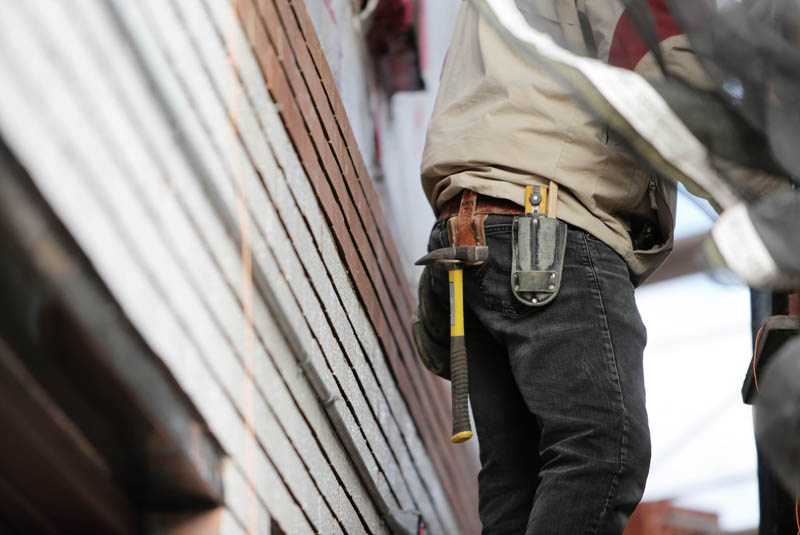
Over a quarter (27%) of UK construction business owners struggle with depression, anxiety, increased stress and other serious mental health related issues caused by the worry of late payments.
More than half (53%) regularly lose sleep over poor cash flow caused by clients paying late and 6% even claim to have lost their hair because of the anxiety.
The research commissioned by The Prompt Payment Directory (PPD), a new payment rating website for businesses, comes amidst Labour’s plan to crackdown on late payments to SMEs and follows the enforcement on 6th April of the Government’s new ‘Duty to Report’ scheme that requires large companies to report on payment practices twice a year.
The survey polled 1,000 UK small to mid-sized company owners including over 300 SME construction owners, who all suffer from poor cashflow due to late or outstanding invoice payments. The research examines the personal, financial and business impact of late payments.
The human cost
According to the FSB the UK’s poor payment culture costs the UK economy £2.5 billion each year and has forced 50,000 small companies out of business. 30% of invoices are paid late and, as PPD’s research reveals, over a third (44%) of construction company owners are sacrificing their own salary as a result.
A lack of income caused by poor cashflow into the business because of late payments is affecting the life of construction owners outside of work.
A fifth (20%) struggle to pay their mortgage or rent or have been forced to sell the family home. A combined 20% have also had to re-mortgage their home or take out a payday loan to raise capital. 17% have been refused credit and 15% have had to sell assets such as shares, pension plans and even the car to make ends meet.
The consequence of these late payment pressures is also destroying people’s marriage, family and social lives.
Nearly a fifth of construction business owners combined say that poor cashflow from late payments has put significant pressure on their marriage/relationship (14%) or caused it to fail (5%). 7% have put on hold plans to grow their family, get married or go on honeymoon, 10% have removed their children from private school or can no longer afford to pay for school trips, clubs or tuition, and 1% have even rehomed the family pet because of the cost.
Many (20%) have cut back on their social activities like going to the cinema, eating out or drinks with friends; cancelled their family holiday; and cut down on family parties and celebrations.
Sacrifices to staff
Late payments have also led to tough changes to the business, reveals PPD’s research.
35% of construction company owners have paid their staff late, stopped or delayed bonuses, and some have had to cease staff perks like company phones, cars or health insurance, and cancelled staff social events, training days and company away days. Many say that staff morale, recruitment and retention has been affected.
The brink of bankruptcy
Despite countless sacrifices, over a quarter (29%) of construction companies have been on the brink of bankruptcy or liquidation due to late payments. Over a third (34%) have been forced to take out a business bank loan to cover the outstanding payment.
A quarter (25%) struggle to pay the business rates with 19% struggling to pay the office mortgage/rent, and 22% have been refused a company loan due to poor credit score.
A lack of cash means 10% of construction firms are in desperate need of refurbishment with 18% unable to afford to replace out-of-date or broken equipment and furniture.
Taking action
Construction companies are hitting back against late payers.
Over a third (34%) have blacklisted such customers and 36% enforce a late penalty fee. 14% have sought a County Court Judgement and more than a third (36%) have either used a debt collection agency or law firm, or an alternative low cost cash flow recovery service.
Hugh Gage, Managing Director of The Prompt Payment Directory, comments: “The financial implications of late payments have been well reported over the years but our research delves deeper into the repercussions of poor cashflow to reveal how it affects and even destroys people’s health and lives.
“The Government’s Duty to Report is a welcome step in tackling late payments but it has its limitations,” continues Hugh. “Only large companies are required to report and only twice a year, but late payment isn’t simply an issue between small suppliers and large customers. According to recent Labour party figures, 160,000 small firms were forced to pay their own suppliers late because of delayed payments. Our research echoes these findings, with a fifth of SME construction owners claiming that late payments are either made by smaller suppliers or a mix of large and smaller organisations.
“Also, the Duty to Report requires debtors to report on their own payment practices, which is counter intuitive, plus an absence of context behind the reasons for the late payment makes it harder for small businesses to reach decisions before entering contractual relationships.
“To end the UK’s poor payment culture, we need greater transparency throughout the entire supply chain and to encourage best practice which is why we’ve set up The Prompt Payment Directory, so all companies can be rated on their payment behaviour whether good or bad, and by those that are affected – their suppliers,” concludes Hugh.













